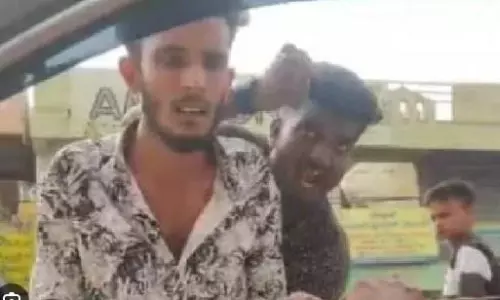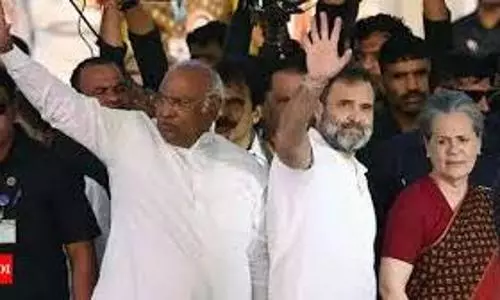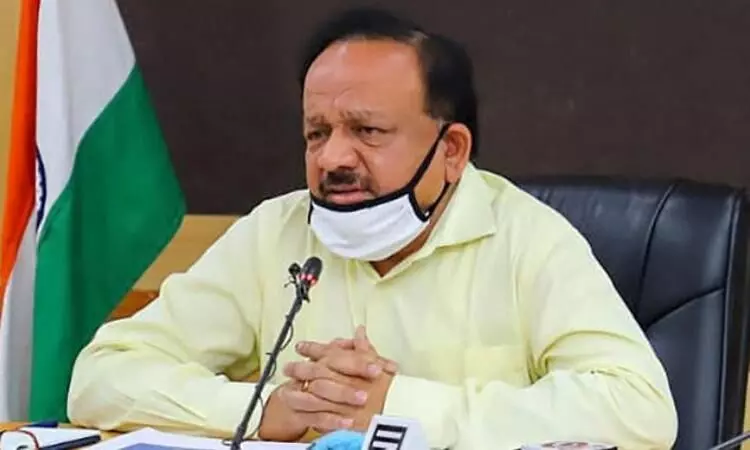
Covid: Centre's caution to Kerala
text_fieldsUnion Health Minister Harsh Vardhan, Image credit: PTI
Going by figures released by the central health ministry and voluntary organisations, the spread of Covid in the country as a whole has shown significant drop over the last three weeks. It is consoling that in the last one month the rate of recovery per day has been higher than that of new cases. While a month ago, over 95,000 cases were reported per day, that has now come down to 60,000. Death rate too, which had crossed a thousand, has been reduced by 60 percent. An expert committee appointed by the Centre opines that if this trend continues, disease spread can be brought under control by the end of the year. All the same, the same panel has expressed fears about the possibility of a second wave of disease incidence. Citing the case of Europe, they say that with the onset of winter, there is a likelihood of disease spreading again. Further, in north India, winter season is also the season of festivals. The possible crowding during that time bears the risk of intensifying the spread. Therefore, bearing this risk in mind, the panel recommends taking ample precautions. It is in the context of this report that central Health Minister Dr Harsh Vardhan, while participating in the online programme 'Sunday Samvaad' mentioned the case of Kerala. The essence of his criticism is that the epidemic curve of Kerala changed completely because of easing of lockdown restrictions during the Onam season and that other states have to take a lesson from this experience.
Minister Harsh Vardhan's comments cannot be seen as entirely free of political motives. The record of Kerala is far better than that of the Centre by any standards of Covid prevention. On a national level, the minister did not make any reference to states including Gujarat – whose rate of Covid incidence is three times the national average. And his steps such as sending a central team to non-BJP ruled states like Kerala and Rajasthan, cannot be seen as entirely innocuous. All the same the substance in what he said needs to be recognised too. When epidemic is showing signs of abating at the national level, the situation in Kerala is just the opposite. Over a week, Kerala's daily caseload is above 7500. And the test positivity rate too is higher than the national average: in over 50,000 people tested, over 13 percent test positive which is a clear sign of serious disease transmission. The only redeeming fact is that death rate has been held in check. It is perhaps with this fact in mind that health minister KK Shailaja openly admitted that the government had already shared the concerns of the central minister. And true, before the beginning of Onam, chief minister Pinarayi Vijayan too had warned the people that care should be taken to avoid formation of 'Onam clusters'.
As a matter of fact, even before 'Onam clusters', Kerala's hold on Covid controls had got out of hand. During the time when very low caseloads were reported, Kerala had shown exemplary vigil, but that was not sustained with the same vigour in later days. What was believed at the beginning of that period was that with the return of expatriates in large numbers, huge disease spread would occur. But it happened so only to a limited extent, and it never entered a hazardous phase of community spread. Even that limited extent of transmission happened because of unwarranted easing of quarantine standards. In parallel, similar unscientific relaxations were allowed in lockdown too. People made roads more crowded by making use of this situation. By that time, the Kerala model caution and care, which the state had evolved slackened. Because the state was able to put in place a robust preventive machinery, the disease was held in check, but that made people nonchalant; and therefore caution went out the window. And Onam clusters were a natural fallout of this. This caution can however be recaptured. We have an efficient preventive machinery that has won plaudits from the global community. To put that to good use and stem the spread of disease is what the government is bound to do at this stage. The chief minister has reacted to the central minister's remarks by saying that those remarks are against facts, it is part of a bid to defame the state and that no major concessions were allowed during Onam season. But the task before the government now is not to indulge in controversies, but to formulate effective action plans to contain the disease in close co-ordination with the population.























